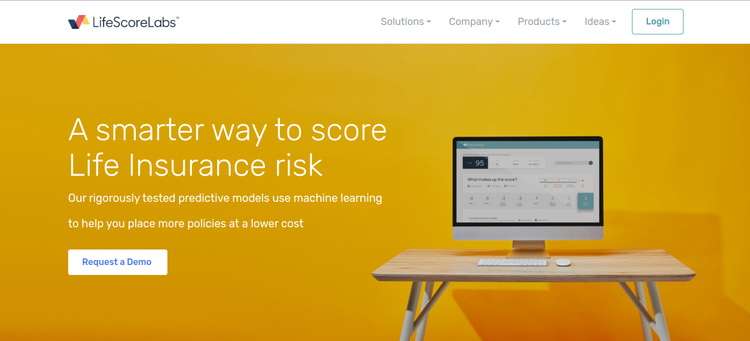Buy Dr. Paul's Magic Elixr! Solve Your B2B Woes
The latest numbers from the Business Information Network show that things ain't looking good for print publications in B2B. Ad revenue and ad pages are down. And no doubt there's not a soul anywhere in the industry who is surprised by this latest bit of bad news.
As I said a little more than a month ago, much of the B2B publishing world, weighed down by heavy debt loads and soaring print costs, "has sunk into a death spiral." Heck, things are getting so bad on the print side that I'm even nervous about publishers that don't have debt. Certainly I'm not the only person to be worried. Two of my new favorite sites -- Business Media Blog and
Private Frazer's Doomed Magazines -- are dedicated primarily to documenting the troubles in our industry (both sites, however, focus on U.K.-based publishing.)
I love this industry, and I hate to see it suffer. So I do what I can to make things better.
But lately I've begun to worry that I haven't done enough.
No Sale
A man should know his weaknesses. I certainly know mine -- and over the years my business has been hurt by one weaknesses in particular: I'm not much of a salesman.
I've been lucky that this hasn't kept me from working for myself. Every single client that Paul Conley Consulting has ever had has come to me through referrals, personal relationships or this blog. I haven't had to make cold calls, etc.
But I've decided to change that. I've decided to learn to sell. Because a man should try to conquer his weaknesses. And because I want do more to help this industry and because I'm just arrogant enough to believe that I can solve much of what ails us if I can get people to buy into my ideas.
So I've begun trying to pick up some sales skills. I've been chatting with buddies who make their living in sales. I've been reading books and checking out blogs that focus on making sales to businesses.
No Problem
In order to sell something to a business, you have to be solving a problem.
In one fashion or another, that seems to be what all the experts suggest about selling to a business. Understand a business' problems, and then sell your product or service as a solution. In the world of business sales, it would seem that if you don't offer solutions, you won't make the sale. (That, I suppose, is why so many salespeople have the annoying habit of calling whatever they sell a "solution." Hence a person who sells software to trucking companies isn't a software salesman, he's a logistics software solutions provider.)
So as I first read all this sales material, I was encouraged. It seemed that I was in the perfect position to "sell" my consulting services.
It seemed clear to me that nearly everyone in B2B publishing had some combination of the same three problems. And I offered services -- either directly or through other clients -- that could help solve any of them.
So I wrote out some notes for sales calls and listed the problems and solutions.
1. Poor editorial: Publishers are expecting more and better work online from their editorial teams. But in B2B, much of our online content is still awful. It's produced by people who don't understand Web journalism and resist change. Solution: In-house training and/or outsourcing some products.
2. Soaring costs: At the rate that costs are rising, print publishing may soon be limited to the higher ends of the B2C market. But even if things never get quite that bad, there's no doubt that publishers are choking on the costs of print. Solution: Move to Web-first publishing and prepare to go Web-only and/or outsource print-only jobs in design and layout.
3. Demands for revenue growth: Online revenue has soared in recent years. But publishers continue to struggle to find online revenue sources that are robust enough to replace declining print revenue. Complicating matters is that much of our existing online revenue will certainly disappear as our customers grow more sophisticated. We've been selling a lot of crap in B2B for a long time -- filling our coffers with money from ineffective buttons, widely ignored banners, opt-out newsletters and page view numbers that aren't filtered for 'bots. Solution: In-house training of ad sales staff and/or move to a lead-generation model.
No Thank You
So last week I tried to use my new understanding of how to make sales. I started talking to people about the problems I see in B2B publishing. I wasn't actually making sales calls. Rather I was practicing my pitch with people in the industry.
What I found -- much to my surprise -- is that a lot of people in B2B don't believe in the problems. Rather, they seem to think that things are going badly for them solely because of factors that are out of their control.
I've spoken to editors of sites that are simply awful by any measure. But those people think their content is just nifty, and that the sales team just sucks.
I've spoken to print-centric sales folks who are now selling for the Web, but don't understand the difference between opt-out and opt-in. These folks think what they are selling is valuable, and that the editorial team just sucks.
I've spoken to folks who are being crushed by print costs -- pouring the vast majority of their budgets into a product that is produced only once a month. But those people think that print (and print-only workers) must be saved, and that the Web/the boss/this point in history just sucks.
Every once in awhile I spoke with someone who agreed that there was actually a problem in his/her own department. But those people inevitably portrayed those problems as inevitable -- there weren't enough resources, there wasn't enough time and it wasn't worth asking the boss for help.
The Next Step
If there are any expert salespeople reading this post, then they aren't surprised by what I found. Such experts would note that I've been testing my sales approach on people who aren't "decision makers." Rather I've been talking to the people I usually talk to -- the reporters, editors, sales staffers, designers and the rest of the people who do the work of B2B.
And any sales expert would say that I'm going to have to move up the food chain if I'm going to find people who can both see the problems and buy the solutions.
So in about two weeks or so, after I return from a business trip, I'm going to start calling some of the CEOs in B2B publishing and make some sales.
It's my hope that even if the powers-that-be in B2B disagree with me about how to solve our problems, they will at least be able to see our problems.
Otherwise, we're all doomed.
tags: journalism, b2b, media, trade press, magazines, newsletters, business media, web-first publishing, advertising




